The Hidden Hero: Maintaining Water Purity with Filter Upgrades
Over time, sediment accumulates, bacteria can begin to thrive, and flow becomes restricted.
Behind every clean, clear, and safe water supply lies a powerful but often overlooked component—the water filter. Whether part of a residential water purification setup or integrated into a commercial pump system, filters work continuously to remove contaminants, reduce sediment, and keep water moving efficiently through pipes and fixtures. These unsung heroes play a central role in maintaining both water quality and system integrity.
Filters are not designed to last forever. Over time, sediment accumulates, bacteria can begin to thrive, and flow becomes restricted. Without regular attention, filters lose effectiveness and allow impurities to pass through. Equipment is then forced to work harder, energy use increases, and repairs become more frequent. Upgrading or replacing filters at the right time prevents these issues while extending the life of the entire water system.
Understanding the importance of proper filtration, knowing when upgrades are necessary, and working with pump repair professionals all contribute to healthier systems and cleaner water. Regular maintenance and professional insight verify filters do their job quietly and efficiently, without surprise failures or water quality issues down the road.
The Foundation of Water Quality
Water treatment systems are only as strong as the filters that support them. Whether pulling water from a municipal line, well, or reservoir, particles and contaminants can make their way into plumbing systems. Sediment filters are the first line of defense, capturing sand, dirt, rust, and other suspended solids before they damage pumps, clog pipes, or reach appliances.
A high-performing sediment filter reduces turbidity, creating a foundation for additional purification steps. Systems that include carbon filters, UV purification, or reverse osmosis all rely on clean water entering each stage. Without effective pre-filtration, these more delicate components become overwhelmed or damaged.
Professionals specializing in pump repair and filtration understand how to assess incoming water and select the appropriate filter setup. They analyze sediment load, flow rate, pressure requirements, and material compatibility to recommend filters that protect equipment and improve overall performance.
Signs of Filter Performance Issues
Filters are designed to collect debris and hold it, but eventually, every filter reaches capacity. When filters become clogged or fail altogether, several symptoms start to appear. These early warning signs are often subtle but tend to worsen over time.
A noticeable drop in water pressure is one of the most common signs that a filter is saturated. As sediment builds up, it reduces the amount of water that can pass through, resulting in weak flow at fixtures or across connected systems. Sudden pressure loss may also indicate a complete blockage.
Discoloration in the water or visible particles in sinks, tubs, or glassware suggest that the filter is no longer removing sediment effectively. In some cases, bypass may occur, where water finds a path around the filter due to cracks or improper installation.
Odors or unusual tastes can indicate bacterial growth inside the filter housing or on the filter media. As filters age, especially in warm or humid environments, they become more prone to biological contamination.
Instead of guessing the cause of these symptoms, working with a professional allows for a proper diagnosis. Technicians evaluate the system, inspect the filter, and recommend the right steps to restore function.
Impact on System Operations
Dirty or failing filters do more than affect water clarity. They create stress on pumps and other mechanical components. As filters restrict flow, pumps work harder to maintain pressure. This increased workload shortens the lifespan of motors, impellers, seals, and bearings. Over time, neglected filters lead to pump failure, increased electricity use, and more frequent maintenance calls.
Unfiltered water also carries abrasive particles into sensitive components. Sediment wears down pipe interiors, damages valves, and causes gaskets and seals to deteriorate. These minor issues accumulate over time, resulting in more frequent leaks, reduced pressure, and premature equipment replacement.
By regularly replacing sediment filters, system performance remains consistent, and energy efficiency improves. Water moves freely, pressure remains stable, and the risk of component damage is significantly reduced.
Professional Assessment Benefits
Most property owners are not experts in water treatment or pump operation. That is where professional assessments become essential. Experienced technicians bring insight and technical knowledge that identifies potential problems before they become major failures.
During an assessment, a professional inspects each part of the filtration and pumping system. They look for signs of wear, check pressure gauges, assess flow rates, and review filter performance. These evaluations often reveal early-stage issues that can be addressed quickly and affordably.
Professionals also help develop maintenance strategies that match the system’s specific needs. Rather than relying on a calendar schedule or guesswork, assessments guide timing based on real-world performance.
Filter Selection Factors
No single filter is right for every application. The best choice depends on multiple variables. Water quality is the first consideration. High levels of sediment, iron, or organic material require different filter media and pore sizes than water that is relatively clean.
Flow rate is another critical factor. Filters must be large enough to handle the system’s demand without restricting pressure. Undersized filters reduce efficiency, while oversized filters may be costlier than necessary.
Installation space, pressure rating, material compatibility, and maintenance accessibility all influence the selection of filters. A filter that works well in one system may not be practical in another.
Professionals evaluate these criteria and suggest options that fit the system’s needs and budget. By selecting the right filter, the system performs more reliably and requires fewer adjustments.
Installation Requirements
Proper installation ensures that filters function correctly from day one. Orientation matters, especially in vertical or horizontal systems. Incorrect installation can cause water to bypass the filter entirely or allow debris to accumulate in dead zones.
Installers also consider access for maintenance. If a filter is tucked behind other equipment or installed in a cramped location, replacing it becomes more difficult. Easy access encourages regular service and helps prevent delays.
In some cases, installation requires system modifications. Pressure regulators, bypass valves, or sediment drains may need to be added for proper operation. Professionals possess the expertise to handle these tasks efficiently and safely.
Maintenance Schedule Development
One of the most effective ways to prevent filter-related problems is to follow a maintenance schedule. But not all systems require the same timing. Usage levels, water quality, and seasonal factors all influence how quickly a filter becomes saturated.
For example, a commercial facility with high daily water use may need filter changes every month, while a residential system with cleaner water might only need replacements twice a year. Seasonal shifts also play a role. During spring runoff or drought, sediment levels often spike, shortening the life of filters.
Professionals help monitor performance and suggest maintenance intervals based on actual conditions. They also document service visits, replacement dates, and any changes in performance. These records help track trends, support warranty claims, and guide future decisions.
Water Quality Testing
Testing water regularly helps determine how well filters are performing. Laboratory analysis can detect contaminants such as iron, manganese, bacteria, nitrates, or total dissolved solids that may not be visible to the naked eye. Comparing test results over time reveals whether a filter is effectively removing particles or if its performance is declining.
When test results change unexpectedly, it often points to a failing filter or a change in the source water. Technicians use these insights to adjust filter types, increase replacement frequency, or add additional filtration stages.
Regular testing is also a valuable tool for homeowners and property managers looking to meet health or regulatory standards. Clean, safe water depends on both proper filtration and continuous monitoring.
Cost Management Strategies
Regular filter replacement is far less expensive than emergency repairs or equipment replacements. Planned maintenance spreads costs evenly, allowing for smarter budgeting. It also minimizes the risk of surprise system failures that could lead to water damage or business disruption.
Professional services often offer maintenance packages or service agreements that include routine filter changes and system checks. These programs reduce labor costs, provide priority scheduling, and verify that filtration stays on track.
In the long run, preventive maintenance and filter upgrades pay for themselves through improved efficiency, fewer repairs, and extended equipment life.
System Protection Methods
Filters do not always work alone. Multi-stage filtration systems provide layered protection against a wide range of threats. Pre-filters trap larger particles, protecting finer filters downstream. Post-filters catch any debris that may have passed through, securing the cleanest possible water at the final outlet.
Each stage targets a specific type of contaminant, from sediment to chlorine to bacteria. Proper design by a filtration professional guarantees that the system is balanced, effective, and easy to maintain.
Emergency Response Capabilities
Even the best-maintained system can face unexpected issues. That is why professional services include emergency response options. When a pump fails, a filter ruptures, or water quality suddenly drops, a rapid response makes all the difference.
Experienced technicians arrive equipped with replacement parts, diagnostic tools, and the necessary knowledge to resolve problems quickly. This minimizes system downtime, protects property, and restores clean water without delay.
Performance Documentation
Every system benefits from accurate recordkeeping. Documenting filter changes, pressure readings, test results, and service visits provides a clear view of system health. This history helps identify performance trends, anticipate future needs, and maintain warranty coverage.
Professional services typically provide digital records and reporting tools, enabling property managers and business owners to stay informed and up-to-date.
Environmental Considerations
Disposing of old filters responsibly helps reduce environmental impact. Many filter components are recyclable, and some manufacturers offer take-back programs. Choosing filters with eco-friendly materials and long service lives also reduces waste.
Professional services adhere to disposal regulations, minimize chemical use, and assist clients in selecting filtration options that align with their sustainability goals.
Technology Applications
Modern filtration systems increasingly include technology upgrades. Pressure sensors, flow meters, and digital controllers provide real-time feedback on performance. Some systems send alerts when filter replacement is needed or when pressure drops below optimal levels.
Professional services stay current with these technologies and integrate them into new and existing systems. Digital monitoring facilitates easier scheduling of services, quicker response to issues, and the maintenance of consistent water quality.
Safety Protocols
Filter maintenance must be done safely. Some systems operate under pressure, contain hot water, or include chemicals. Professionals use protective gear, follow lockout procedures, and handle components with care to ensure their safety.
Technicians are trained to work safely in confined spaces, adhere to local codes, and minimize contamination risks during service. Hiring certified professionals secures safety for both personnel and property.
Future Planning and Long-Term Value
Filters support the entire water system, so planning is essential. As buildings expand, water demand increases, or local water sources change, filter systems must be upgraded accordingly to meet the new requirements.
Professional evaluations help plan for growth, recommend suitable upgrades, and identify opportunities to improve performance. Consistent filtration maintenance preserves the value of existing infrastructure and supports future expansion.
Conclusion
Water filters work quietly in the background, but their impact on system health and water quality is undeniable. Replacing sediment filters regularly, upgrading to the right filtration type, and scheduling professional service help avoid failures, extend equipment life, and ensure clean, safe water. With the support of experienced technicians, filtration becomes a smart and manageable part of property maintenance—protecting everything from pipes and pumps to people and their peace of mind.

